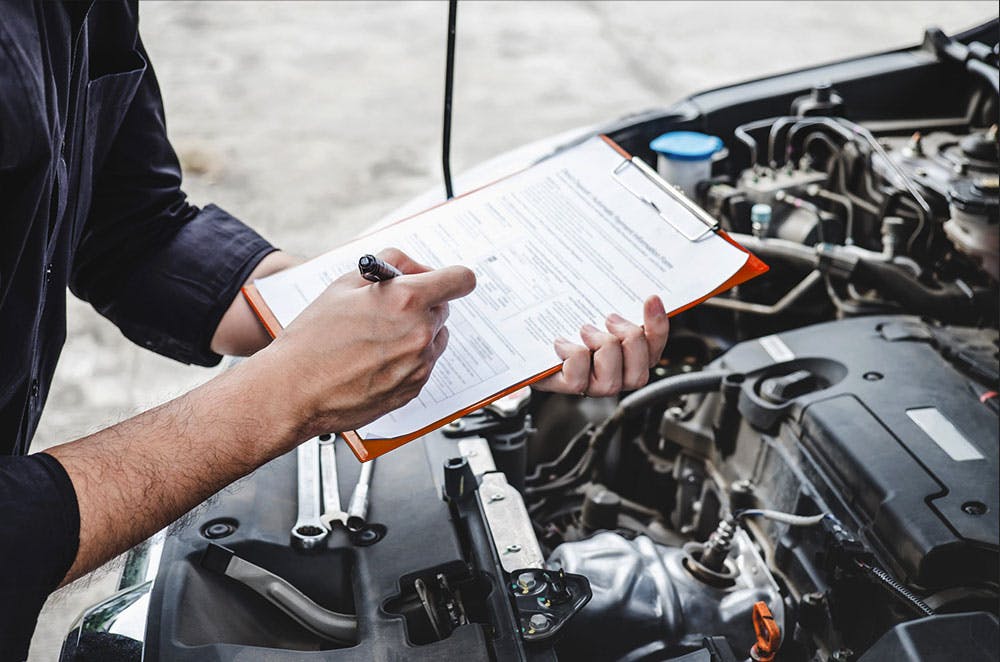All Categories
Featured
Your car's engine is an intricate system that depends on numerous interconnected parts to operate correctly. One of one of the most critical components that makes certain whatever runs efficiently is the timing belt. Frequently ignored, the timing belt plays an important function in keeping your engine integrated and running at peak efficiency. Ignoring its maintenance or replacement can result in serious, expensive damages to your engine. In this short article, we'll discover the value of timing belt substitute and why it's vital to your engine's durability.
What Is a Timing Belt and Exactly How Does It Work? The timing belt is a rubber or enhanced composite belt that connects the crankshaft to the camshaft in your engine. These 2 components should operate in sync for the engine's valves to shut and open at the ideal times throughout the combustion cycle. The timing belt regulates this synchronization, ensuring that the pistons and valves do not clash.
![]()
As your engine runs, the timing belt consistently transfers to keep these elements lined up. Gradually, the belt undertakes deterioration from engine, warm, and rubbing vibrations. If it breaks or becomes loosened, the crankshaft and camshaft will no longer be integrated, creating engine misfires, loss of power, or, in the worst situation, extreme engine damages.
Why Timing Belt Replacement Is Important. Avoids Serious Engine Damage: If the timing belt breaks while the engine is running, the pistons can hit the valves, triggering bent shutoffs, harmed pistons, or also a split engine block. This sort of damages often requires pricey and considerable repair work or a whole engine replacement. Replacing the timing belt before it fails is a cost-efficient and simple means to avoid such devastating effects.
![]()
Ensures Smooth Engine Procedure: A well-kept timing belt helps maintain your engine running smoothly by maintaining the appropriate synchronization between the crankshaft and camshaft. When the timing belt is broken or extended, the timing of the engine's shutoffs may be off, triggering engine misfires, rough idling, or delaying. Changing the timing belt at the suggested interval makes certain that the engine runs as it was created to, maximizing efficiency and efficiency.
Saves You Cash: Although replacing the timing belt might feel like a significant ahead of time expenditure, it's even more economical than the expense of fixing or changing a damaged engine. The labor associated with changing the timing belt is much less costly than repairing engine elements that are damaged due to a broken belt. Regular timing belt substitute can conserve you hundreds of dollars in the long run by avoiding engine failure and pricey repairs.
Prevents Unforeseen Failures: If your timing belt breaks all of a sudden while you're driving, it can leave you stranded and call for pricey towing. In the most awful cases, it can create a total engine failing that provides your auto unusable. By replacing the timing belt according to the manufacturer's standards, you reduce the threat of unexpected break downs and guarantee your vehicle stays trusted throughout day-to-day driving and lengthy journeys.
When Should You Replace Your Timing Belt? The timing belt does not last forever, and its substitute timeline can vary depending upon the make and model of your lorry. Most producers advise changing the timing belt every 60,000 to 100,000 miles. However, it is necessary to consult your automobile's proprietor's guidebook for particular standards, as some engines may call for earlier or later on substitutes.
If you're unclear concerning the problem of your timing belt, signs that it could require changing include unusual engine noise (such as ticking or slapping audios), problem beginning the engine, or inadequate engine efficiency. A professional auto mechanic can evaluate the timing belt for damage and change it if necessary.
Conclusion. The timing belt is a vital part of your car's engine, and its correct upkeep can save you from expensive repair work and engine damages. Routinely replacing the timing belt at the maker's advised intervals aids make sure smooth engine operation, stays clear of unexpected break downs, and inevitably lengthens the life of your engine. Do not overlook this essential maintenance task-- by staying on top of timing belt substitute, you're investing in the long-lasting health and wellness of your automobile.
What Is a Timing Belt and Exactly How Does It Work? The timing belt is a rubber or enhanced composite belt that connects the crankshaft to the camshaft in your engine. These 2 components should operate in sync for the engine's valves to shut and open at the ideal times throughout the combustion cycle. The timing belt regulates this synchronization, ensuring that the pistons and valves do not clash.

As your engine runs, the timing belt consistently transfers to keep these elements lined up. Gradually, the belt undertakes deterioration from engine, warm, and rubbing vibrations. If it breaks or becomes loosened, the crankshaft and camshaft will no longer be integrated, creating engine misfires, loss of power, or, in the worst situation, extreme engine damages.
Why Timing Belt Replacement Is Important. Avoids Serious Engine Damage: If the timing belt breaks while the engine is running, the pistons can hit the valves, triggering bent shutoffs, harmed pistons, or also a split engine block. This sort of damages often requires pricey and considerable repair work or a whole engine replacement. Replacing the timing belt before it fails is a cost-efficient and simple means to avoid such devastating effects.

Ensures Smooth Engine Procedure: A well-kept timing belt helps maintain your engine running smoothly by maintaining the appropriate synchronization between the crankshaft and camshaft. When the timing belt is broken or extended, the timing of the engine's shutoffs may be off, triggering engine misfires, rough idling, or delaying. Changing the timing belt at the suggested interval makes certain that the engine runs as it was created to, maximizing efficiency and efficiency.
Saves You Cash: Although replacing the timing belt might feel like a significant ahead of time expenditure, it's even more economical than the expense of fixing or changing a damaged engine. The labor associated with changing the timing belt is much less costly than repairing engine elements that are damaged due to a broken belt. Regular timing belt substitute can conserve you hundreds of dollars in the long run by avoiding engine failure and pricey repairs.
Prevents Unforeseen Failures: If your timing belt breaks all of a sudden while you're driving, it can leave you stranded and call for pricey towing. In the most awful cases, it can create a total engine failing that provides your auto unusable. By replacing the timing belt according to the manufacturer's standards, you reduce the threat of unexpected break downs and guarantee your vehicle stays trusted throughout day-to-day driving and lengthy journeys.
When Should You Replace Your Timing Belt? The timing belt does not last forever, and its substitute timeline can vary depending upon the make and model of your lorry. Most producers advise changing the timing belt every 60,000 to 100,000 miles. However, it is necessary to consult your automobile's proprietor's guidebook for particular standards, as some engines may call for earlier or later on substitutes.
If you're unclear concerning the problem of your timing belt, signs that it could require changing include unusual engine noise (such as ticking or slapping audios), problem beginning the engine, or inadequate engine efficiency. A professional auto mechanic can evaluate the timing belt for damage and change it if necessary.
Conclusion. The timing belt is a vital part of your car's engine, and its correct upkeep can save you from expensive repair work and engine damages. Routinely replacing the timing belt at the maker's advised intervals aids make sure smooth engine operation, stays clear of unexpected break downs, and inevitably lengthens the life of your engine. Do not overlook this essential maintenance task-- by staying on top of timing belt substitute, you're investing in the long-lasting health and wellness of your automobile.
Latest Posts
Raise Any Space with Elegant, High-Quality Area Rugs
Published Apr 19, 25
1 min read
Experience Long-term Self-confidence with Bath Fitter Metro Detroit
Published Apr 19, 25
1 min read
Style and Efficiency Combined
Published Apr 19, 25
1 min read